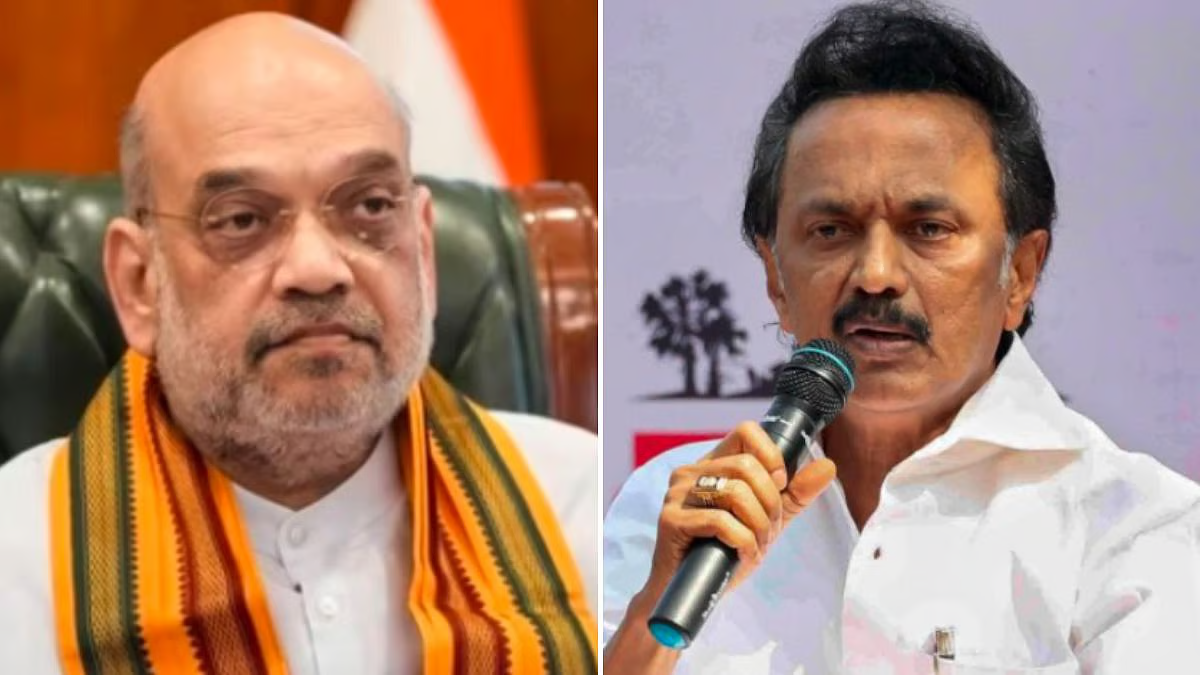Tamil Nadu Chief Minister and Dravida Munnetra Kazhagam (DMK) president MK Stalin on Saturday launched a blistering attack on the newly announced alliance between the All India Anna Dravida Munnetra Kazhagam (AIADMK) and the BJP for the 2026 Tamil Nadu Assembly elections.
Labeling the tie-up as driven by a “hunger for power” and a betrayal of state interests, Stalin predicted its failure, asserting that Tamil Nadu’s people would reject it decisively.
Reacting to Union Home Minister Amit Shah’s announcement of the coalition, Stalin accused the AIADMK of hypocrisy in claiming to oppose policies like the National Eligibility cum Entrance Test (NEET), Hindi imposition, the three-language policy, the Waqf (Amendment) Act, and potential reductions in Tamil Nadu’s representation during constituency delimitation.
“Are these issues part of their Common Minimum Programme?” he questioned, noting that Shah remained silent on these concerns during the press conference. Instead, Stalin alleged, Shah used the platform solely to attack the DMK, its government, and himself, while preventing AIADMK leaders from speaking.
“This AIADMK-BJP alliance is doomed to fail,” Stalin said. “Tamil Nadu’s people have repeatedly defeated this coalition in the past, and now Shah has revived the same failed partnership without stating its ideological foundation.” He criticised the vague promise of a Common Minimum Programme, arguing it lacked substance and conviction.
Stalin contrasted the DMK’s legacy with the alliance’s motives. “The DMK is a movement dedicated to protecting state rights, linguistic pride, and Tamil culture. In contrast, the AIADMK-BJP coalition is driven by a thirst for power, standing against these very ideals,” he said.
He accused former AIADMK leader Edappadi Palaniswami of having “mortgaged Tamil Nadu’s dignity to Delhi” during his tenure, bringing ruin to the state in pursuit of power.
Taking a swipe at Shah’s remarks on corruption, Stalin pointed to the AIADMK’s tainted history. “When Shah talks of corruption while allying with AIADMK, the people of Tamil Nadu must be laughing,” he said, recalling that former Chief Minister J Jayalalithaa stepped down twice due to corruption charges and was sentenced to four years in prison in a disproportionate assets case.
He also highlighted that AIADMK functionaries and their relatives faced central agency raids, suggesting the alliance was a “compromise” born out of fear to escape scrutiny. “The people know corruption is the very foundation of this AIADMK-BJP tie-up,” Stalin charged, warning that those who “pawned AIADMK out of fear are now ready to mortgage all of Tamil Nadu.”
Stalin further alleged that the BJP has a deliberate agenda to undermine Tamil identity through Hindi imposition, hinder Tamil progress via conspiracies, and erode state rights through delimitation.
He described the AIADMK as an “old bonded slave camp,” coerced by BJP threats to execute these plans. “Whether the BJP comes alone or with allies, Tamil Nadu’s people will deliver a fitting lesson to this traitorous alliance that kneels before Delhi without self-respect,” he vowed.
Addressing Shah’s claim that opposing NEET was a diversion, Stalin noted the minister’s failure to clarify his stance when pressed by journalists. “If Shah believes NEET is right, he should defend it openly instead of deflecting,” he said.
Stalin also rebutted Shah’s accusation of deteriorating law and order in Tamil Nadu, stating, “This is not Manipur—this is Tamil Nadu. Shah failed to restore peace in a state where over 250 lives were lost in 18 months, yet he tries to disturb peace here with baseless claims.” He cited central government statistics to affirm Tamil Nadu’s progress, crediting its robust law and order.


 India News14 hours ago
India News14 hours ago
 India News14 hours ago
India News14 hours ago
 India News4 hours ago
India News4 hours ago
 Cricket news4 hours ago
Cricket news4 hours ago
 India News3 hours ago
India News3 hours ago












